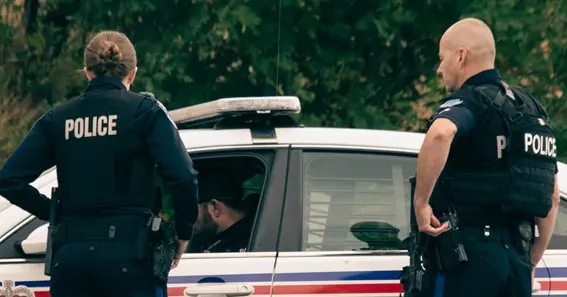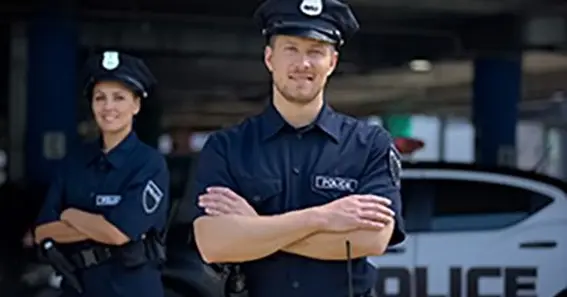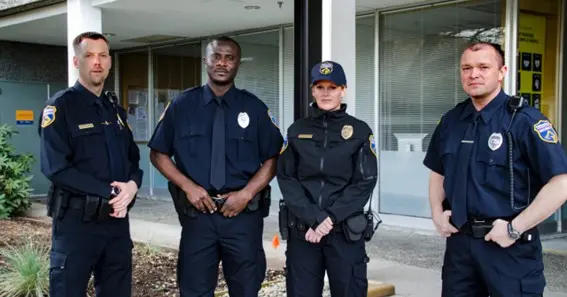LEO meaning police is Law Enforcement Officer, and it can refer to more than only police officers. Many police officers work hard to keep people safe, do the right thing, and run things properly. LEO police, like patrol officers and government personnel, keep neighborhoods secure and enforce the law. This research illuminates LEO Police divisions’ duties, problems, and contributions.
What Is LEO Meaning Police?
LEO meaning police refers to law enforcement officers, but it can also refer to other law enforcement personnel. LEOs protect the peace and have other duties. Many LEO Police jobs undertake distinct law enforcement tasks. This is not like a beat cop, as most people imagine. They guard against crime, mistreatment, and social hazard. There are bold and defensive ways they work. After understanding LEO meaning police let us see some facts about them.
Also Read N: What Is Catcher Balk? Types Of Catchers Balks
Facts About LEO Police

Now that we know what a LEO police is, let’s learn the facts. Many sorts of police work as LEOs. Their job is to enforce laws and keep people safe. They are well-trained and morally bound. This applies to street and specialized police. As the law permits, they respond fast to critical events and use innovative technology and methods for community policing. LEOs are justice’s first defense. They improve and strengthen groupings. They work hard to be proficient and responsible, which helps police excel in a changing environment.
Also Read P: How Often To Replace The Air Filter In Car And How?
Different Roles And Specializations
LEO police officers have several responsibilities that need various expertise. Police stations depend on patrol officers. They visit communities, solve issues, and chat with locals. Detectives investigate significant crimes and gather evidence to catch perpetrators. SWAT squads, narcotics, and hacker units face distinct challenges that demand special training and expertise.
What You Need And Training
Police recruits must undergo rigorous training to acquire the information, skills, and mentality needed for the position. Police schools teach criminal law, firearms safety, self-defense, and disaster response. Exercise assessments ensure police candidates have the endurance and quickness to accomplish their tasks. Most areas require a high school diploma or above.
Legal Force And Power

The constitution and statutes give the LEO Police authority. This is crucial to their work. To maintain order and safety in their region, they can employ force. LEO Police can arrest, search, and enforce the law. The law limits this ability. These guidelines ensure that police actions are legitimate and don’t infringe on rights. Authority notifies LEO Police where they can and cannot work, demonstrating their power and responsibility.
Morality And Ethics
LEO Police values honesty, speed, and morality. Because LEO Police officers control public trust and justice, people have great daily aspirations for them. Following conduct norms, department policy, and the law is crucial. If you do, you may get problems and attention. Internal affairs investigations, citizen control boards, and court reviews make police operations transparent. Because of this, system trust will increase.
Police Community Involvement
There is more to becoming a competent police officer than simply following the regulations on the job. What counts is how well law enforcement agencies get along with the people they are sworn to protect. Through community police efforts, the LEO Police Department has the ability to identify and resolve local problems with local businesses, individuals, and member organizations of the community.
To get a better understanding of communities, law enforcement officers (LEOs) should foster communication, trust, and real connections. This enables them to modify their approaches in order to achieve a variety of goals. LEO Police are a part of everyday life since they patrol and assist people in finding solutions to problems. Programs that involve community service help communities become stronger and more improved.
Handling Serious Events

Changeable threats and situations might arise at any time. Therefore, LEO Police must be ready to respond promptly and efficiently to significant occurrences. Long Island police must have the training, tools, and capacity to work together to reduce dangers and save lives in active shooter, natural disaster, and terrorism circumstances. Bomb squads, hostage negotiators, and fast-reaction teams train hard to prepare for high-stakes situations. By assessing risks, gathering information, and working with other agencies, LEO Police can halt emerging threats immediately and reduce the damage.
New Tools And Methods
Law enforcement is always evolving as a result of changes in society, technological advancements, and regulatory requirements. LEO Police are able to combat crime and keep people secure with the use of new technology and procedures. Body-worn cameras, drones, predictive analytics, and fingerprint recognition devices are some of the tools that law enforcement officers implement in order to collect data, enhance their work performance, and respond to new threats. Through ongoing training and personal development, law enforcement officers are able to acquire new ideas and best practices.
Conclusion
LEO meaning police in law enforcement officers are the first line of defense. They are responsible for preserving peace, according to the law, and safeguarding the health and safety of everyone. LEO Police are now ready for anything that may come their way. Justice, equality, and freedom are all things that they fight for, which helps society to grow. In order to do this, they will be trustworthy, accountable, receptive to novel concepts, and focused on the community.
FAQ
How Do LEO Police Differ From Others?
LEO police patrol, investigate and work for the government. Following the law and keeping people safe is their primary task.
How Do LEOs Become Officers?
While criteria vary, most require a high school diploma, police college training, and a fitness exam and background check.
What Do LEO Police Do With Locals?
LEO Police do neighbourhood checks, outreach, and crime prevention training. Trust and collaboration to tackle communal issues will increase.
How Can You Trust LEO Police?
Internal affairs reviews, citizen control boards, and ethical standards help the public trust LEO Police.
How Do LEO Police Act In Severe Situations?
LEO Police respond promptly and effectively to active shooters and natural disasters. They reduce dangers with particular ways and technologies to keep people safe.
Sources:










